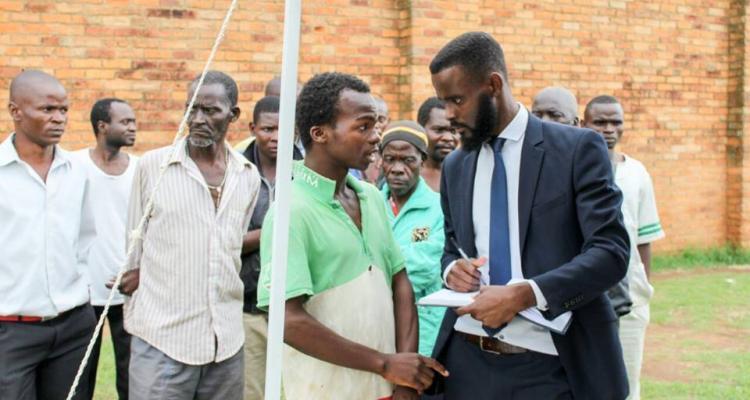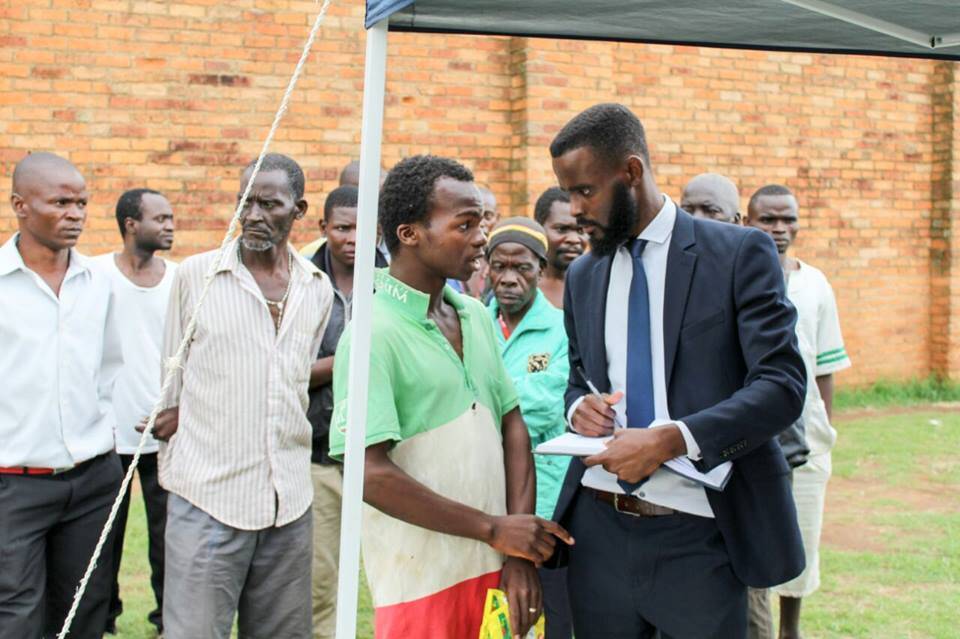
It was a time to celebrate Christmas, the birth of Jesus Christ, who poured his blood to liberate humankind from sins but for Blessings Gomani a visit by a community of Saint Egidio on Christmas Day last year restored his hope of walking out of Chichiri Prison.
Gomani aged 19 witnessed the reality of conditions in Malawi’s prisons that are despicable – fuelled by overcrowding and a maximum of one meal a day – after he got arrested for the charges of unlawful wounding of a woman, Doris Kamwendo.
He was arrested after Doris claimed that Gomani wounded her when she was attacked by men whom she insulted.

“On 7th December last year, I was with my girlfriend Doris walking to my house and it happened that she insulted some boys whom she suspected to be robbers and they beat her but to my surprise the facts were presented as if I was the one that beat her up.
“The police came to my house to arrest me and they could not allow me to explain to my relatives that they were taking me to a police cell at Nyambadwe police. During the first day of my court appearance my girlfriend did not show up and I was remanded at Chichiri Prison after the case adjourned to 20th December from 17th same month,” said Gomani.
He explained to have tried getting justice prevail for his case after the police failed to take him to court on the day that was set for the court to hear the case.
All the efforts to get a bail were in vain and his relatives did not know the whereabouts of hopeless Blessings who at that time was at Chichiri.
The visit by Saint Egidio community on Christmas last year meant Gomani’s freedom to walk outside the walls of Chichiri Prison.
The community through its legal clinic began a battle through lawyer Alexious Kamangira in pursuit for justice.
Weeks later, Gomani was released on bail and the relatives got the information of his arrest after they had stayed for a month without knowing where he was.
On 31st March 2017, after 3 months of criminal trial since Saint Egidio took the matter, the state withdrew the case against Gomani for lack of enough evidence.
This was as a result of the state’s evidence being damaged through cross-examination thereby rendering their evidence inadequate to establish the guiltiness of the accused beyond reasonable doubt as required.
Circumstantial evidence implicated Blessings and coupled with the victim identifying him, in the absence of legal representation, he was facing a likely conviction rendering him liable to a sentence of seven years imprisonment.
As life is always a departure rather than an arrival, Blessings’ story renews the mission to reach out to many people with legal assistance.
Many like Blessings are languishing in prison on the disguise of waiting for trial on remand or being convicted as a result of legal illiteracy coupled with failure to afford a legal practitioner.
Whereas others face stiff punishments for offences whose sentence should have been light.
Meanwhile, the community visits the prison every fortnight to offer hope to the inmates while providing the material needs to them.














